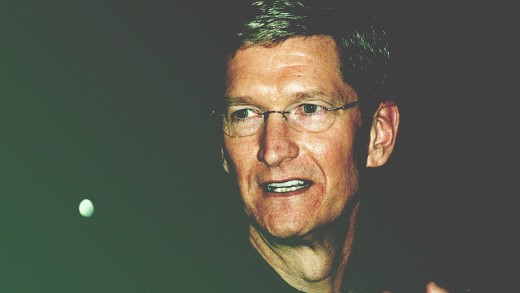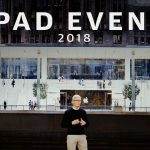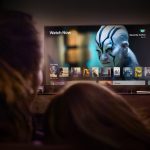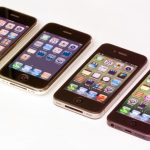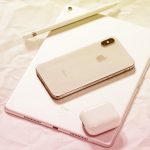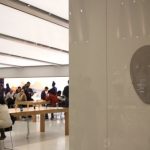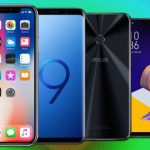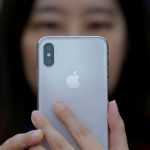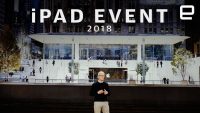Apple To Challenge Court’s Decryption Order As “Unreasonably Burdensome”
Apple has confirmed to Fast Company that it will soon challenge a court order to help decrypt the iPhone of one of the San Bernardino terrorists. The application will state that Apple considers the FBI’s request to be “unreasonably burdensome.”
The District Court of the Central District of California late Tuesday ordered Apple to help the FBI unlock and decrypt data on the iPhone 5c owned by Syed Rizwan Farook, one of two people who opened fire on a government office in San Bernardino, California, on December 2, killing 14 and seriously injuring 22. Farook and his wife, Tashfeen Malik, died in a gun battle with authorities after the attack.
The court order says Apple has five days from Tuesday to respond to the order, but a CNBC report Thursday night reports that the court has now given Apple until February 26.
The court order directed Apple to build a new firmware that, once installed on Farook’s iPhone 5c, would allow the FBI to digitally enter an unlimited number of passcodes until it finds the one that unlocks the phone and decrypts the data on the phone. The iPhone 5c uses a 4-digit passcode, so the number of possible combinations is 9,999—not a high number for a computer working quickly.
Since Apple released iOS 8, full encryption on iPhones is enabled by default, which means not even Apple can get into an iPhone without the passcode set by the user. Normally, if the user enters the wrong password on repeated attempts, they’re made to wait increasing periods of time before they can try again. If the user tries unsuccessfully 10 times, the data on the phone can become permanently encrypted, and useless. The FBI believes Farook had the “auto-erase” function set to “on.”
The FBI attorneys who filed the request, Allen Chiu and Tracy Wilkison, didn’t respond to questions from Fast Company regarding the specific data the FBI hopes to recover from Farook’s phone.
Apple CEO Tim Cook published an open letter protesting the court’s order, arguing that forcing Apple to create a “back door” to its own phone would weaken user privacy and set a dangerous precedent.
At the end of the order, the court offers Apple a means to push back. “To the extent that Apple believes that compliance with this Order would be unreasonably burdensome, it may make an application to this court for relief within five business days of receipt of the Order,” it reads.
Asked if and when Apple would file such an application with the court, the company responded:
“We’ll be responding to the government’s warrant within the five business days by challenging it,” an Apple representative said in an email to Fast Company Thursday. “We haven’t done so yet.”
“There’s no other way to challenge it than by filing our response,” the person said.
When Cook published his open letter in opposition to a court order to help the FBI access an iPhone, it was perhaps his biggest “activist CEO” move to date. Many consumers and businesses are lining up to support Cook since that time.
Activists started a petition at the White House’s “We The People” site. “We the undersigned, oppose this order, which has implications far beyond the legal case at hand,” the petition description reads. The petition was started (February 22, 2016), and needs another 98,000 signatures to be reviewed by the White House.
We the People petitions have worked well before on tech issues. A 2013 We The People petition asking that the government compel wireless companies to unlock smart phones led to a new law allowing such unlocking in 2014.
Not even 24 hours after the Cook’s letter was published Tuesday night, a group of demonstrators showed up at the Apple Store in downtown San Francisco to show support for Cook’s strong stance against granting law enforcement a “back door” of any kind in order to release data encrypted on iPhones.
A number of demonstrations in support of Apple are being planned at Apple Stores in cities across the country for next Tuesday, February 23.
It’s hard to find anyone in tech circles who doesn’t support Apple’s opposition to the order.
The Electronic Frontier Foundation put it like this in a blog post Wednesday:
“Essentially, the government is asking Apple to create a master key so that it can open a single phone. And once that master key is created, we’re certain that our government will ask for it again and again, for other phones, and turn this power against any software or device that has the audacity to offer strong security.”
The EFF believes that compliance with the court’s request could start a dangerous trend.
“The U.S. government wants us to trust that it won’t misuse this power. But we can all imagine the myriad ways this new authority could be abused. Even if you trust the U.S. government, once this master key is created, governments around the world will surely demand that Apple undermine the security of their citizens as well.”
The App Association worries that a master key would have a reverse effect on stopping digital crimes. “The world has moved mobile with consumers expecting access to their most important data through the cloud,” said the group’s executive director Morgan Reed. “The smartphones and tablets we use must maintain the strongest security to keep our most sensitive, private data safe.”
“The FBI’s demands would substantially undermine our best means of keeping critical data out of the hands of criminals and bad actors,” Reed said in an email statement to Fast Company.
Updated 2/18 12 a.m. Eastern with CNBC information that Apple has been granted more time to respond to the court.
Fast Company , Read Full Story
(20)

